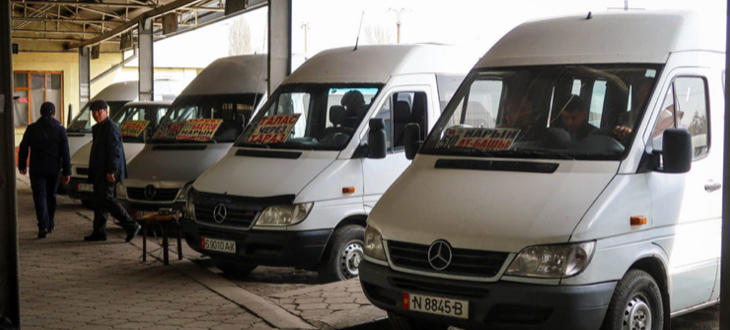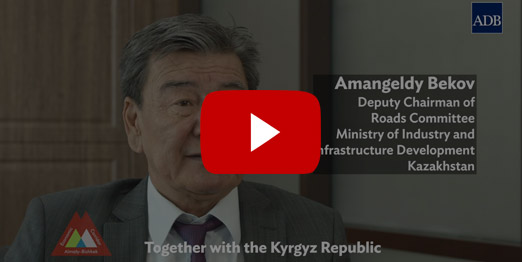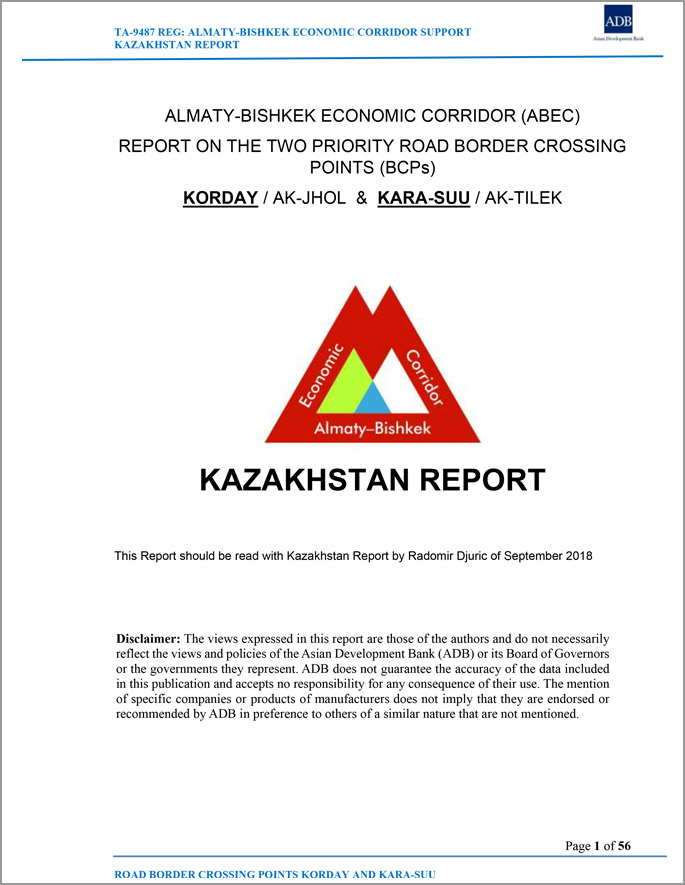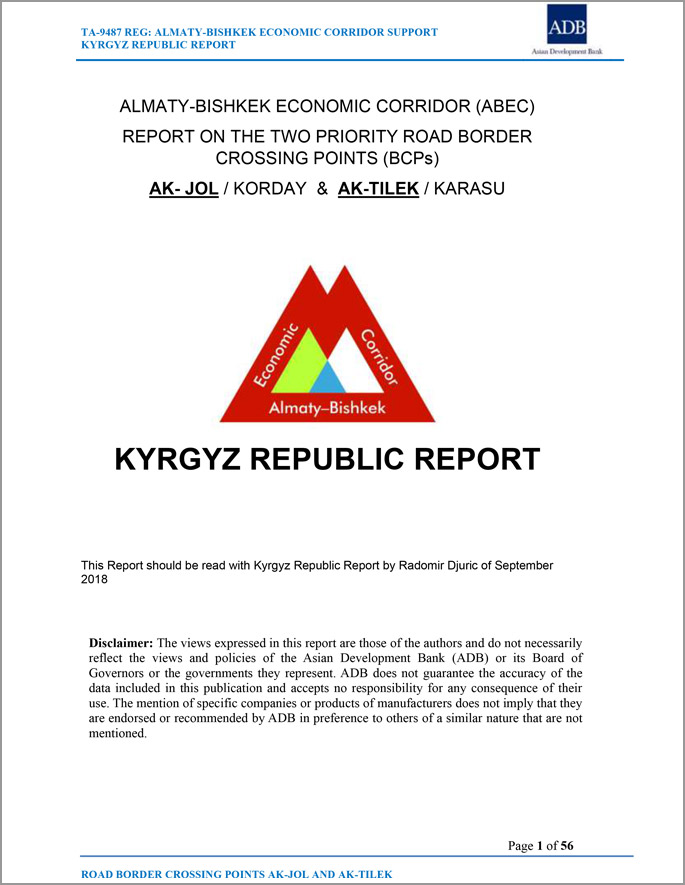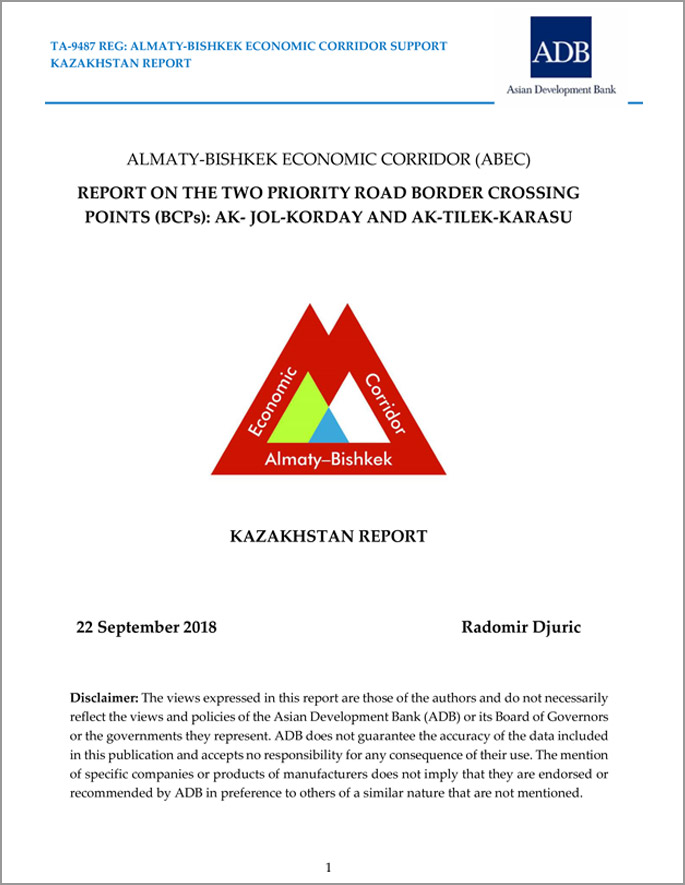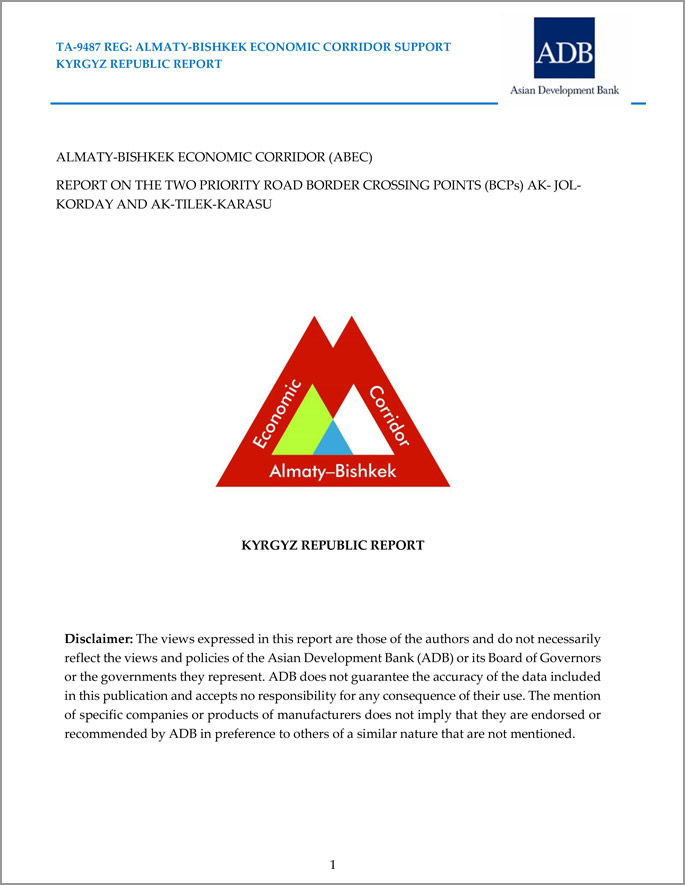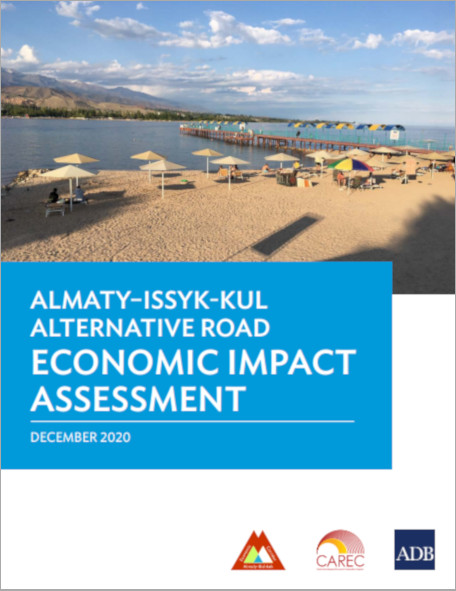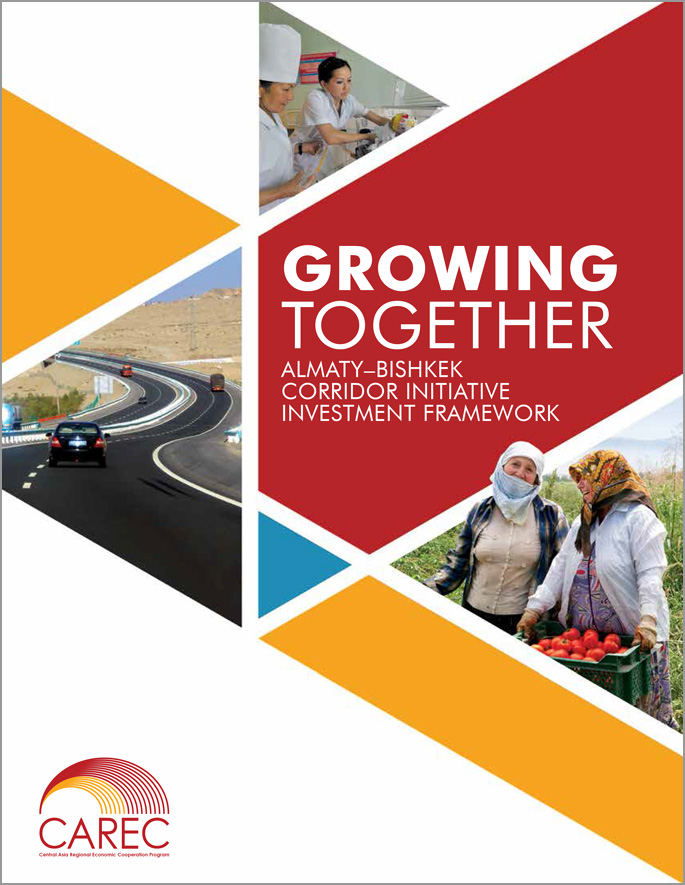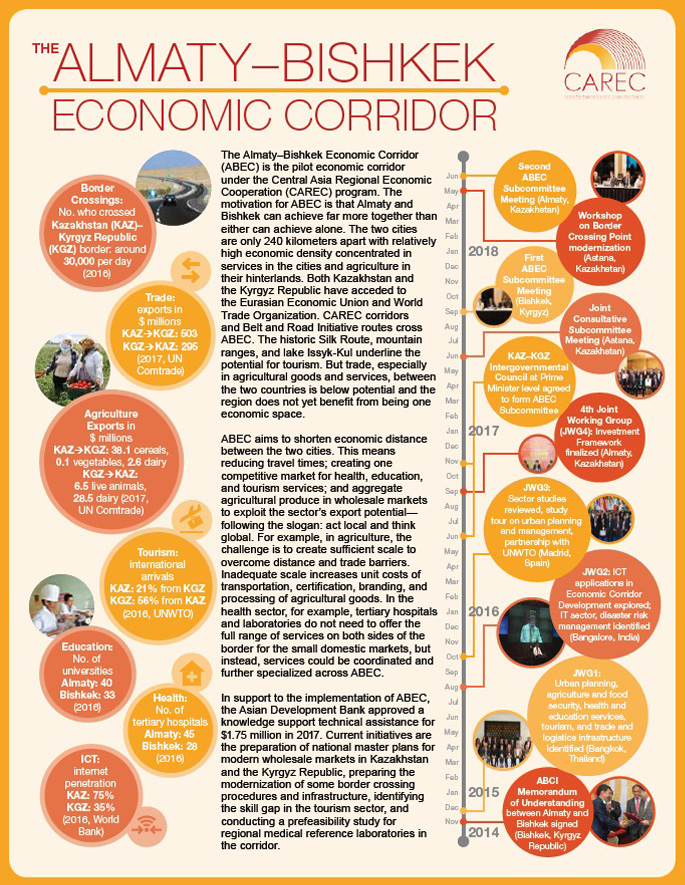The Almaty-Bishkek Economic Corridor, the pilot economic corridor has the vision of creating one integrated markets with businesses of different sectors operating as if they would be in one country. The pilot corridor has been created in a region that is sparsely populated, divided by mountain ranges, and far away from major markets. But within Central Asia, the economic corridor builds on two relatively close urban drivers of economic growth.
Almaty and Bishkek are two economic centers connected by a rehabilitated road, which is the underlying linear dimension of the economic corridor. But in the middle of this modern highway is an international border crossing that was established during the changing political and trade relations between the two countries.
With increasing regional integration and trade, the border crossing points between both countries have become a bottleneck for the more than 30,000 people that cross them each day. To increase trade, tourism, and knowledge exchange, modern border crossing facilities and procedures are being developed.
Another vital linear link is between Almaty, the most prosperous city in Central Asia, and lake Issyk-Kul, a popular tourist destination. The two areas are only about 80 km apart, but the 485-km road connecting them runs around the impressive Tian Shan mountain range. A more direct toll road across the mountains is thus being explored as part of the economic corridor.
Current Projects:
Almaty-Issyk-Kul Road Project Economic Impact Assessment
A crucial project for tourism development and transport integration in the Almaty-Bishkek Economic Corridor is an alternative road between Almaty and Issyk-Kul. The proposed road will reduce travel times from 7h to around 2 hours and allow for weekend tourism, as opposed to concentrating on short summer holiday tourism. That will considerably increase the length of the season and will make several investments possible, that would be too risky otherwise. Under ABEC an economic impact assessment has been conducted.
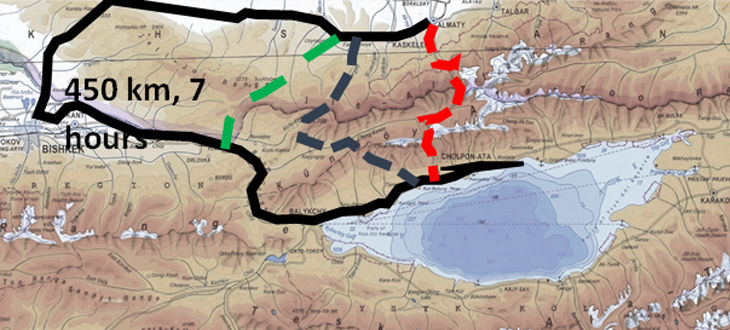
Border Crossing Point Modernization
BCP modernization. BCPs are still major bottlenecks. Crossing the border is uncomfortable, creates a bad tourism experience as a first impression/contact with a country. BCPs cause unpredictable delays and are volatile to political tensions. [click] ABEC has developed design and process proposals that are now being implemented by both governments in their plans to modernize the relevant BCPs between KAZ and KGZ.
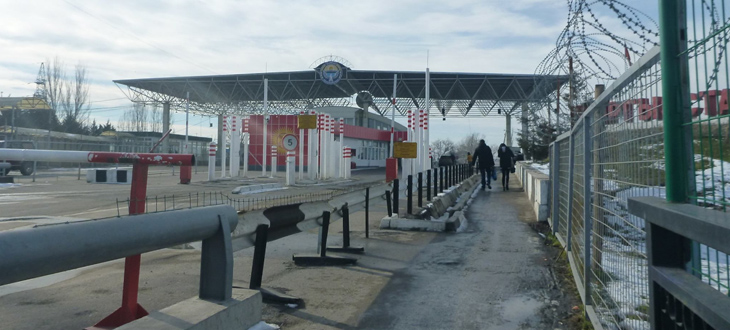
Direct Bus Service
Fast, and direct bus services between the two cities and its airports are crucial to connect people. Today, busses do not follow a regular schedule and often face significant delays at the border crossing points during peak season. A direct regulated bus service can reduce the time at the border when bus lanes are operational. Mobile passport readers can secure on-bus clearance of passengers. Routes to connect airports of Bishkek and Almaty can help coordinate flight schedules for more regular national and international flights.
